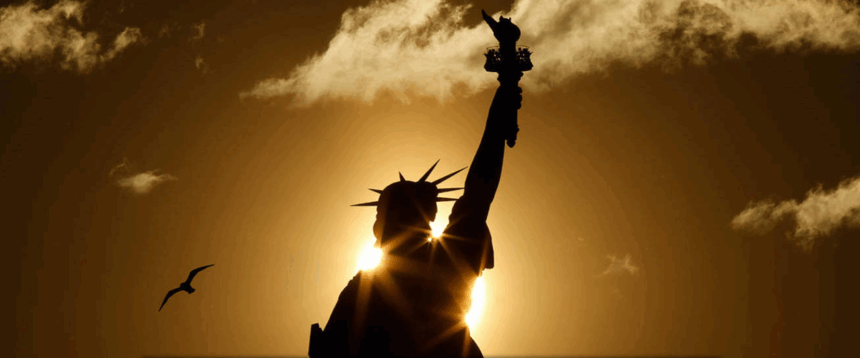Summary by Geopolist | Istanbul Center for Geopolitics:
Chris Patten writes not just with a diplomat’s eye, but with a deep personal ache—for a country he once believed stood for something greater. In this piece, he speaks of America not as an outsider wagging a finger, but as someone mourning the unraveling of a long-held promise.
That promise was once captured in an old Puritan phrase: “a city on a hill.” It was meant to inspire. Over the centuries, it became more than a biblical reference—it became an idea. A vision of America as a moral compass, a place that didn’t just preach freedom and justice but lived it. Millions around the world—refugees, dissidents, students, reformers—looked to the United States not just for power, but for principle.
But Patten fears that city is crumbling. Slowly at first. Now, frighteningly fast.
Donald Trump, now in his second term, has turned the U.S. presidency into a kind of performance—where loyalty matters more than truth, where institutions are there to be bent, not respected. Patten doesn’t use alarmist language lightly. But he does say plainly: Trump behaves like an authoritarian. He surrounds himself with people who nod along, not those who challenge him. Cabinet meetings look more like reality TV than democratic governance.
Vice President J.D. Vance—once a harsh Trump critic—now plays the role of loyal foot soldier, having traded in his warnings about “America’s Hitler” for proximity to power. Secretary of State Marco Rubio calls Germany a dictatorship because it cracked down on the far-right. And Trump, always more at ease with dictators than with democratic allies, seems determined to reshape America in their image.
It’s not just diplomacy that’s unraveling. At home, universities—once global beacons of free thought—are under siege. Scholars like Timothy Snyder and Jason Stanley, who dared to speak truth to power, are leaving the country. Not because they lost debates, but because the atmosphere has turned poisonous. Their research is smeared. Their voices targeted. This isn’t how democracies behave.
Even the economy, once the cornerstone of Trump’s political brand, is faltering. He inherited growth. He delivered decline. His answer? Blame others. Blame Biden. Blame immigrants. Blame the press. Meanwhile, the policies he champions—slashing aid, gutting public services, giving handouts to the rich—leave the most vulnerable behind. In Africa and Southeast Asia, where American support once mattered, China is stepping in, quietly but decisively, reshaping the world that America is vacating.
And what of American ideals? Free speech is still spoken of—but now it’s wielded as a weapon by those who use it to silence dissent. The rule of law is praised—until a judge rules against the administration, and then they’re labeled a traitor. Democracy is celebrated—so long as it produces the “right” outcome. When it doesn’t, it’s branded as rigged.
Patten asks a painful question: What happened to the America that helped rebuild a broken world after 1945? That stood up for human rights, defended liberal values, and inspired people across borders and ideologies?
He’s not naive. He knows that America has never been perfect. But it aspired. And in aspiring, it led. That aspiration, he fears, is fading.
Still, he refuses to let go completely. He sees glimmers elsewhere—in the electoral victories of liberal parties in Canada and Australia, in the people and institutions still resisting the darkness, in the possibility that this period, too, might pass.
Patten ends not with rage, but with sorrow—and hope. He believes the lights of the city on the hill have dimmed, yes. But they haven’t been extinguished. Not yet. What’s needed now is not more slogans or strongmen—but a rediscovery of humility, principle, and courage.
Because the world still needs an America that inspires. Not through fear. Not through force. But through example.
Read more here.







